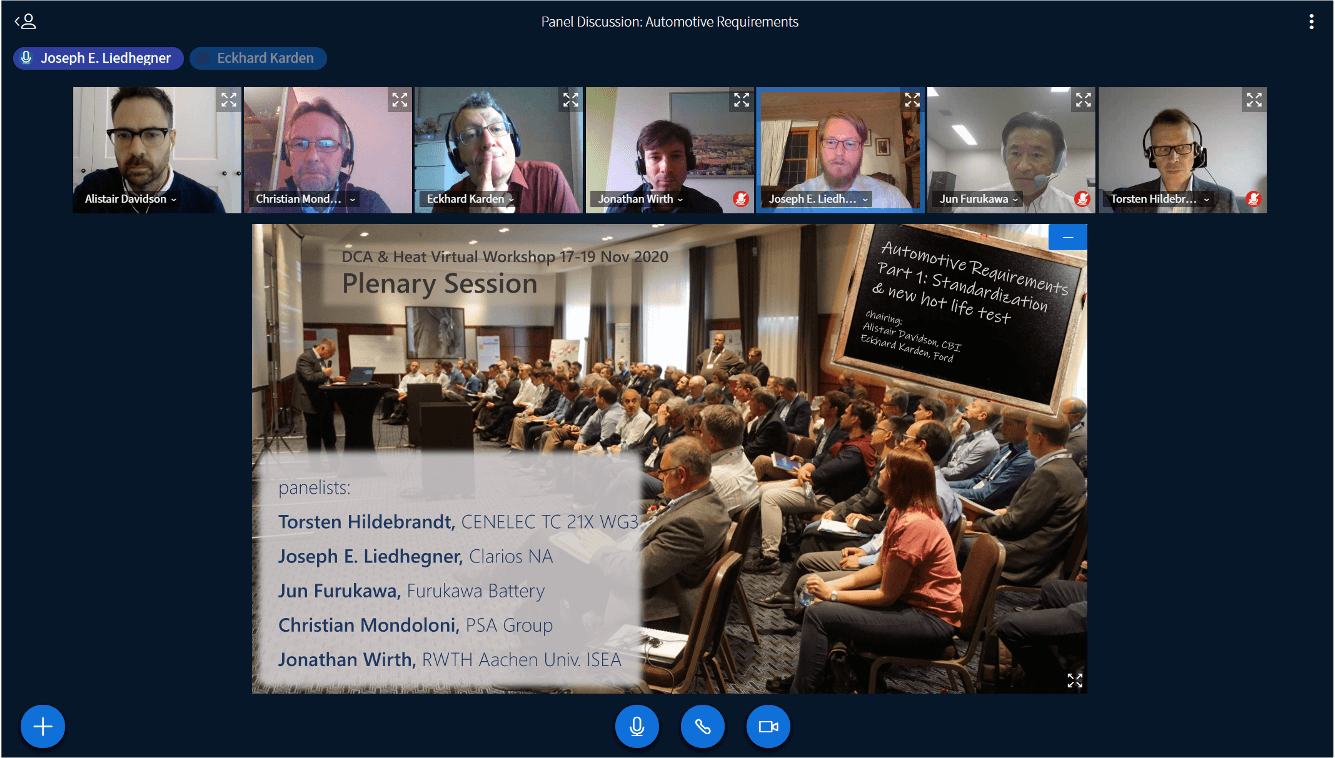
Over the past five years, the DCA & Heat workshops co-organized by CBI and CENELEC and supported by Dr Eckhard Karden based in the Ford Research and Innovation Center in Aachen, have focused on the pressing issues for 12 V automotive lead batteries. The key overall objective of these meetings, which bring together the entire automotive lead battery value chain, is to develop test methods that adequately reflect the Dynamic Charge Acceptance (DCA) improvements seen in lead batteries.
The latest virtual edition of the DCA & Heat workshop, held on 17-19 November, covered many topics related to achieving this objective in a collaborative meeting with automotive OEMs, lead battery manufacturers, researchers, scientists and engineers active in the automotive lead battery field.

With over 100 attendees from across the globe, plenary presentations and interactive breakout sessions focused on six topics:
New micro-hybrid performance testing and nKLT
New revisions to micro-hybrid performance testing by CENELEC and a new key life test (nKLT) have been developed to better evaluate automotive lead battery performance. Representatives from Clarios, PSA Group, and Exide Technologies lead discussions on the revisions and demonstrated how current lead batteries are meeting these more stringent requirements. In-depth discussion in this breakout session not only focused on performance, but also the standards methodology and how the CENELEC group developed these changes.
Functional safety
The increasing reliance of vehicles on batteries for safety during both typical use and autonomous driving and other complicated actions has resulted in a rapid evolution in functional safety approaches for lead batteries in vehicles. A special topic covering the basics of functional safety, how lead batteries offer many advantages such as reliability and safety, and how the industry is working to answer the increased need from OEMs were discussed by battery manufacturers and automotive OEMs.
DCA: test sequence
DCA is a key performance driver for 12 V automotive batteries and is a priority research objective in CBI’s Technical Roadmap. Discussions during this breakout topic focused on new test sequences to measure DCA. Producing tests that better reflect real-world conditions for automotive lead batteries is vital to measuring DCA accurately, and industry leaders discussed preliminary results and the implementation of new DCA sequences.
DCA: measurement
As a complementary session to the DCA test sequence topic, a breakout session was held to tackle the contributing factors to disparities in DCA measurements during charge and discharge. The so-called “DCA memory” effect requires further exploration, and a special working group has been established to study this effect in participant’s laboratories. This session really showed the value of the DCA & Heat workshops in tackling key issues facing the automotive lead battery industry and the vital research work that is generated as a result of collaborative discussion amongst industry leaders.
High-temperature
High-temperature testing at the cell level can be difficult to implement, and scientists spanning the entire industry discussed best practices and examples of lead battery test cells used for high-temperature studies. A special working group has been formulated to assist in implementing new high-temperature tests, specifically the nKLT, into test cells.
Failure modes
Positive grid corrosion and paste shedding are the primary failure modes for lead batteries in high-temperature testing and applications. Metallurgists, electrochemists and battery engineers joined together in this session to discuss corrosion, positive additives and pioneering techniques for studying positive electrodes. This work will be vital in addressing failure modes and ultimately enhancing the performance of lead batteries for 12 V automotive applications.

What's next?
As we move into the sixth year of DCA & Heat Workshops, the cross-industry collaboration facilitated by these events has propelled key performance enhancements for automotive lead batteries. The interactive sessions continue to be a crucial driver in undertaking advancements in the technology and delivering vital insight into ensuring 12 V lead batteries remain a dominant technology in the future to meet evolving automotive technical demand.
